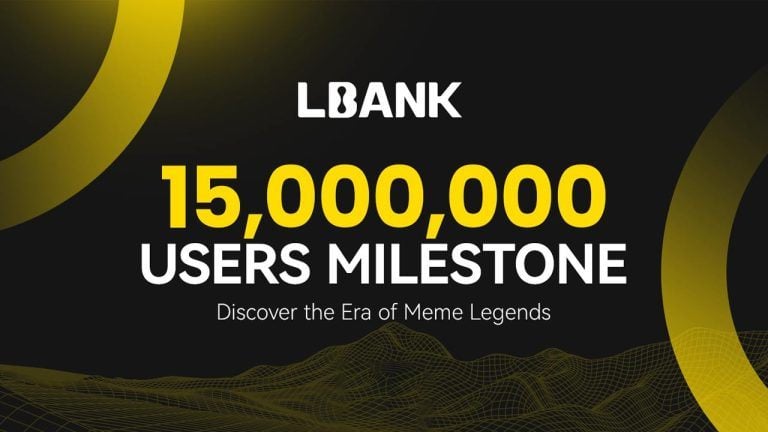The book "Softwar: A Novel Theory on Power Projection and the National Strategic Significance of Bitcoin" by Jason P. Lowery offers an extensive exploration of Bitcoin through the lens of strategic and cybersecurity, as opposed to a purely fiscal one. It presents a novel theoretical paradigm for assessing the potential strategic national implications of Bitcoin, viewed as an electro-cyber defense technology as opposed to a decentralized electronic cash system.
The following are some pivotal arguments and possible inaccuracies from the standpoint of a Bitcoin developer:
Proof-of-work
The proposition that Bitcoin, via its proof-of-work protocol, can be perceived as an electro-cyber security framework allowing for the exertion of tangible power in the digital domain. Lowery posits that Bitcoin equips individuals with the capacity to enforce severe physical consequences (represented in wattage) on adversarial entities attempting to exploit them via software. This viewpoint conceptualizes Bitcoin as a mechanism for power projection, enabling individuals to establish and maintain an untrusting, permissionless, egalitarian, and decentralized dominion over bits of information, provided they have the will and capability to wield physical power to safeguard it (Page 245).
The critique here, though, points out that this is an intriguing perspective; the primary purpose of Bitcoin is to operate as a decentralized digital currency. The power projection elucidated by the author is an ancillary outcome of Bitcoin's decentralization and inherent security, rather than its primary intent. The function of Bitcoin's proof-of-work algorithm is to fortify the network against double-spending and other forms of attack, not to project power in a geopolitical context.
The book also proposes that Bitcoin could upheave human power-based dominance hierarchies from their foundational roots (Page 374). While it's undeniable that Bitcoin has the potential to disrupt conventional financial systems and power structures, it was not designed to be an instrument for power projection in the same way that military or economic resources are. Bitcoin is a tool for financial sovereignty and privacy, not a weapon for geopolitical power struggles.
The book seems to equate the physical power utilized in Bitcoin's proof-of-work algorithm (i.e., the energy expended to mine Bitcoin) with the notion of power projection in a geopolitical environment. While it's true that Bitcoin mining demands substantial energy resources, it is distinctly different from the concept of power projection, which usually involves employing military or economic force to influence the actions and behavior of other nations.
Bits and Value
The book asserts that the bits within Bitcoin can symbolize any kind of valuable data that individuals desire it to represent, including but not confined to financial information (Page 375). It further implies that once we have deduced how to keep financial bits of data physically secure against attack, we have in essence figured out how to protect all types of information from physical attack (Page 34).
While it is indeed factual that Bitcoin's blockchain can be employed to store and transmit non-financial data, it's crucial to understand that this is not its primary function. Bitcoin was developed as a peer-to-peer electronic cash system, with the primary objective of facilitating financial transactions without necessitating a trusted third party. The data that Bitcoin primarily processes is transaction data, i.e., detailing who transferred how much Bitcoin to whom.
The capability to store non-financial data on the Bitcoin blockchain is more of an unintended consequence of its design rather than a fundamental feature. This is accomplished by utilizing specific fields in the transaction data to store arbitrary data, but this practice is generally discouraged because it can result in blockchain bloat. The Bitcoin blockchain is not intended to function as a general-purpose data storage system, and employing it as such can induce inefficiencies.
Storing non-financial data on the Bitcoin blockchain does not offer any additional security advantages over storing financial data. The security of the Bitcoin blockchain is derived from its decentralized, proof-of-work consensus mechanism, which ensures that no single entity can control or manipulate the transaction history. This security extends equally to all data housed on the blockchain, whether it's financial or non-financial.
Strangler Pattern
The book suggests that Bitcoin could serve as a "strangler pattern" replacement of our legacy internet infrastructure with a modern architecture that isn’t as clearly susceptible to systemic exploitation and abuse (Page 376). The book further intimates that Bitcoin could operate as the preeminent mechanism employed by digital-age societies to map or anchor elements of the old internet version to the revamped version of the internet (Page 322).
While Bitcoin indeed introduces a new, decentralized paradigm for financial transactions and data storage, it isn't designed to supplant the entire internet infrastructure. The internet is an extensive and multifaceted system supporting a wide variety of applications and services, from email and web browsing to video streaming and cloud computing. In contrast, Bitcoin is a specific application that operates on the internet, designed to enable peer-to-peer financial transactions.
The claim made by the book appears to conflate the concept of a decentralized financial system (which Bitcoin offers) with the idea of a decentralized internet (which is a much broader and more intricate concept). While there are projects and technologies aiming to foster a more decentralized internet (such as InterPlanetary File System (IPFS) and various blockchain-based "Web 3.0" initiatives), Bitcoin is not one of them.
The book's suggestion that Bitcoin could serve as the dominant mechanism for tying the legacy internet to a new version of the internet is speculative and isn't substantiated by current technological realities. While it's true that blockchain technology (the underlying technology of Bitcoin) has potential applications in areas like decentralized identity systems and domain name systems, these are still largely experimental and have not been widely adopted yet.
Kinetic Power
The book propososes that Bitcoin could significantly transform the way humans vie for control over valued resources, effectively resetting the global balance of power in a manner akin to the profound changes brought about by full-scale kinetic world wars (Page 376). The author further proposes that Bitcoin could revolutionize the perception of physical confrontation in the digital-age society (Page 370). Moreover, it's implied that global adoption of an electro-cyber form of physical power competition, facilitated by proof-of-work technologies like Bitcoin, could lead to the genesis of a completely novel form of polity (Page 385).
It is undeniable that Bitcoin holds the potential to disrupt conventional financial systems and power structures. However, juxtaposing its impact to the scale and consequences of world wars is hyperbolic and speculative. World wars resulted in massive loss of human lives, extensive destruction, and substantial shifts in geopolitical boundaries and power structures. In contrast, Bitcoin is a digital currency that operates on a decentralized network. While it can indeed influence financial systems and potentially disrupt some power structures, particularly those related to finance and banking, it is incapable of causing physical destruction or loss of life.
The book suggests that Bitcoin could spawn a completely new form of polity is speculative and isn't supported by current realities. Although Bitcoin and other cryptocurrencies can indeed influence how people transact and store value, they don't intrinsically alter the fundamental nature of societal organization or governance. They may contribute to shifts in power dynamics, particularly in the financial sector, but they do not supplant the need for traditional forms of governance and societal organization.
The book also seems to conflate the concept of power competition in a geopolitical context with the concept of power competition in the context of Bitcoin mining. Bitcoin mining does involve a form of competition, as miners compete to solve complex mathematical problems to add new blocks to the blockchain and receive Bitcoin rewards. However, this is far from the concept of power competition in a geopolitical context, which involves nations competing for resources, influence, and dominance on the global stage.
Projecting Power
The book asserts that Bitcoin, through its proof-of-work technology, could help society secure itself against systemic exploitation of computer networks (Page 378). The author argues that Bitcoin could empower individuals to physically secure their digital information, by projecting physical power in, from, and through cyberspace to impose severe physical costs on those who exploit our computing systems (Page 347). The author further speculates that national adoption of Bitcoin could be conceptualized as the employment of an electro-cyber militia to safeguard and defend a nation’s valuable digital information (Page 360).
While it's true that Bitcoin and other cryptocurrencies can provide a level of security and privacy not available in traditional financial systems, it's crucial to underscore that they also introduce new vulnerabilities and potential for misuse. Bitcoin transactions are irreversible, which can make them appealing for fraudulent activities. Bitcoin wallets can be lost or stolen if not adequately secured. The security of the Bitcoin network itself hinges on its decentralized nature and the computational power required to alter the blockchain, but individual users are still susceptible to scams and hacking.
The book's suggestion that Bitcoin could serve as a form of "electro-cyber militia" is speculative and not universally accepted within the Bitcoin community. Although Bitcoin does offer a method for individuals to secure their financial transactions against interference from third parties, it is not designed to shield against all forms of cyber exploitation or to serve as a form of national defense.
In conclusion, Softwar presents an unconventional viewpoint on Bitcoin's potential influence on national strategic security, proffering that Bitcoin could serve as an effective tool for power projection, system defense, and even societal reorganization. However, these propositions, while intriguing, often veer towards the speculative and seem to be somewhat misaligned with the predominant understanding of Bitcoin's primary purpose and functionality within the field of computer science.
While this book undoubtedly offers a unique and thought-provoking perspective on Bitcoin's wider implications, it is crucial to approach these theories with a discerning and critical eye. It is always beneficial to juxtapose such theories with the broader consensus within the Bitcoin development and computer science communities, to gain a more rounded understanding of this remarkable technology. Ultimately, Bitcoin continues to evolve and its full potential, while yet to be fully realized, remains a subject of intense debate and exploration within the computer science community.
[link] [comments]

You can get bonuses upto $100 FREE BONUS when you:
💰 Install these recommended apps:
💲 SocialGood - 100% Crypto Back on Everyday Shopping
💲 xPortal - The DeFi For The Next Billion
💲 CryptoTab Browser - Lightweight, fast, and ready to mine!
💰 Register on these recommended exchanges:
🟡 Binance🟡 Bitfinex🟡 Bitmart🟡 Bittrex🟡 Bitget
🟡 CoinEx🟡 Crypto.com🟡 Gate.io🟡 Huobi🟡 Kucoin.




















Comments